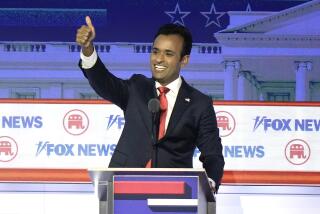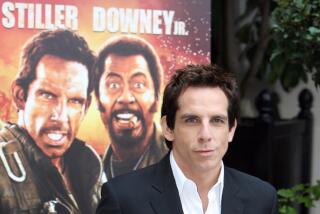Talk Is Risky--That’s a Quote
- Share via
Because most of my friends are non-journalists, I spend a fair amount of my time in social situations defending the press. By far the most frequent complaints come from people with high public visibility who insist they are regularly and sometimes outrageously misquoted.
When that happens, I ask for specifics, which aren’t always forthcoming. When they are, I point out that people frequently say things about which they have serious second thoughts later--and that those second thoughts are easily converted into a conviction that the things weren’t said in the first place.
I know of no human being who can resist the temptation to edit his own words or recant them, which is one reason that quotes--except where complex technical matters or volatile policy decisions are involved--are rarely double-checked.
Several years ago, reporters at the UCI student newspaper interviewed me, then made the mistake--which I had counseled them against in class--of allowing me to review the story. I was almost compelled to do all of the things I had warned my students other story subjects would do, given that opportunity. I changed, fiddled and nitpicked my own quotes. I felt shamefaced, but I did it anyway.
These reflections are inspired by a story in the current Orange Coast Magazine, in which I am quoted at length. The writer talked with me on the phone several months ago, and I had forgotten our conversation when the story was called to my attention.
It is titled “Bucking the System” and has to do mostly with the threshing around of the Democratic Party in Orange County. A rather lengthy sidebar is devoted to me and former Superior Court Judge Bruce Sumner who, oddly enough, is one of the people who has talked to me most frequently about being misquoted.
The writer generally caught the tone and flavor of what I was saying, although he didn’t always pick up on the whimsy. But several of the quotes startled me a little. He has me saying that being a liberal in Orange County “is like being a Methodist in Russia,” which is a nice turn of phrase, but I don’t think I said it. He also has me stating that the right wing in Orange County represents a “xenophobic security blanket,” and I had to look up “xenophobic” to find out what I meant.
There are other difficulties of about the same level of importance, which all add up to a relatively mild cavil. The point, I guess, is that it may be useful to have the tables turned on reporters who are constantly quoting people. It certainly increases the awareness of the importance of accuracy. All in all, I feel I came off fairly well, especially considering that earlier in the story, the author referred to the Orange County Board of Supervisors as “appointed” officials--which doesn’t inspire a lot of confidence in what follows.
But a less obvious--and probably much more universal--point is the difficulty we all have in walking away from our spoken words.
I’ve seen dozens of examples in a lifetime in journalism, but probably the best came a dozen years ago when I was doing a magazine piece about Elaine May--the former partner of Mike Nichols who has since become an actress, writer and film director of some note, and who most recently directed the box office bomb “Ishtar.”
I talked with her on a sound stage in Hollywood, and the press agent who took me there pointed to her door and said, “You’re on your own.” It seems that May had told him she would do no interviews because she had never been quoted properly.
I told her I had never been accused of misquoting anyone, and she told me that I would then have no problem letting her check her quotes in advance of publication. I took up that challenge--something I haven’t done before or since.
She changed semicolons and conjunctions and word shadings, and expanded and contracted quotations from what she said to what--on reflection--she would prefer to say (all things I probably would have done with the Orange Coast story had I been given the opportunity). She concluded her letter: “I imagine that after reading this you will never make such an offer again--and I wouldn’t blame you. But I am glad you did.”
There clearly needs to be a place in public discourse for both the spoken and written word. The written word tends to be more reflective, cautious and thoughtful. The spoken word, by contrast--especially in response to questions--is more impetuous, direct and revelatory. (It can also be highly risky, especially in the hands of incompetent or superficial reporters, of whom, sadly, there are a few around.)
But the answer, especially for public officials, in view of these risks is not to withdraw but to be consistently open and candid. The people whose views are most frequently reflected accurately through direct quotation are those who obfuscate or withdraw the least. They may lose a few, but they’ll win a lot more.
And along the way, I wish that the education of every reporter would require that he see his own quotes in print. It can be a sobering experience.
More to Read
Sign up for Essential California
The most important California stories and recommendations in your inbox every morning.
You may occasionally receive promotional content from the Los Angeles Times.













